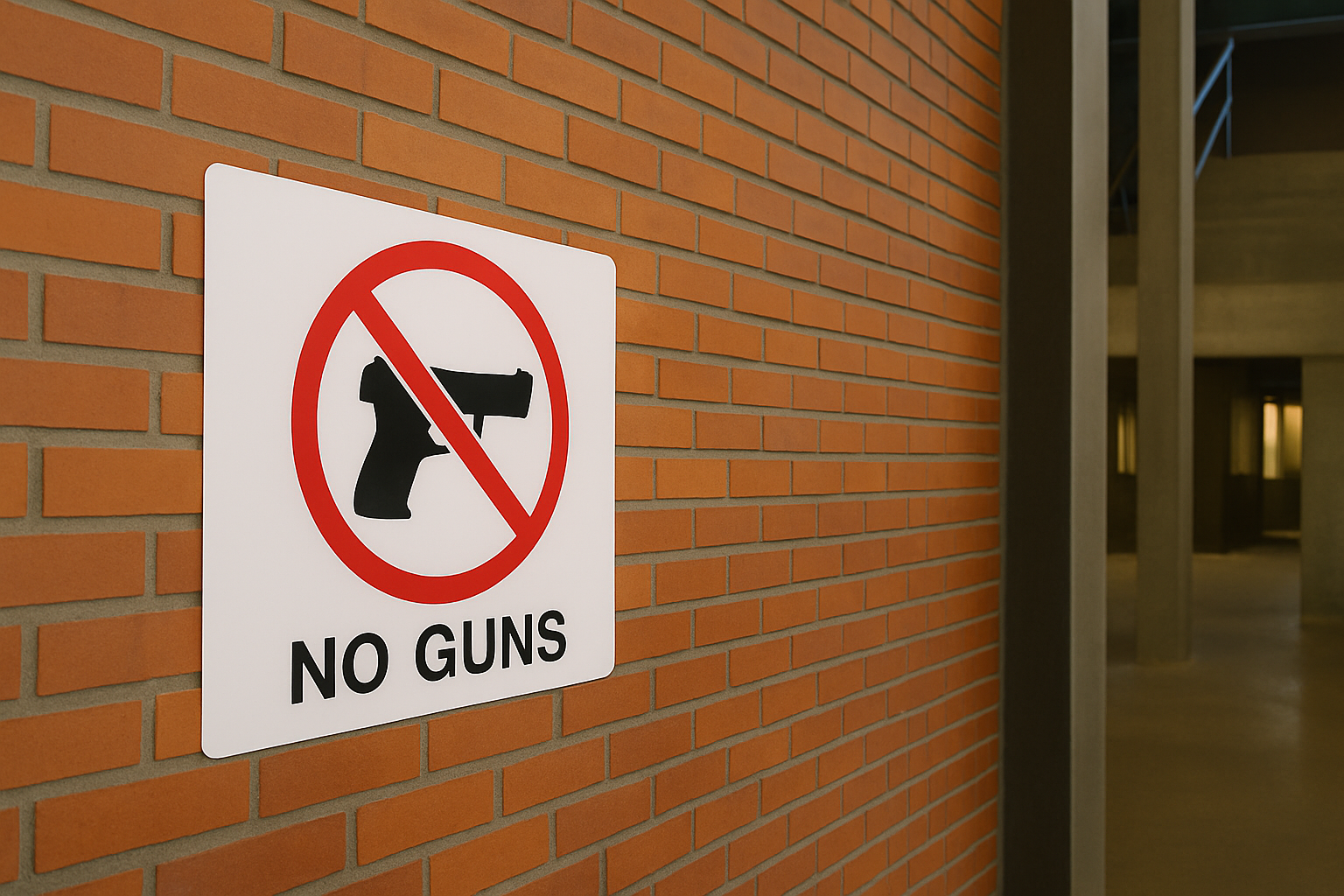For churches considering a firearm-free approach to security, California law allows ministries to designate their property as a gun-free zone. Whether rooted in theology, risk management, or community concerns, taking this step requires a clear policy and proper communication. Here’s what you need to know.
Why Some Churches Choose to Be Gun-Free
Ministries may opt to prohibit firearms on their campus for several reasons:
- A theological commitment to nonviolence
- A preference for unarmed security solutions
- Concern over liability if a volunteer improperly uses a weapon
- Cultural fit with congregation or local community
Regardless of the reason, churches have the authority as private property owners to control what is and isn’t allowed on their premises—including firearms.
Legal Basis: Private Property Rights and Penal Code § 602
In California, Penal Code § 602 allows property owners to prohibit firearms by giving notice. If someone carries a weapon onto posted private property against the stated policy, they can be subject to trespassing laws.
How to Declare Your Campus a Gun-Free Zone
1. Update Your Church Policies
- Include firearm restrictions in facility use agreements, employee handbooks, and volunteer codes of conduct
- Specify any exceptions (e.g., contracted security with BSIS licenses under SB 1454)
2. Post Clearly Visible Signage
- Use consistent language such as: “Firearms Prohibited on This Property.”
- Place signs at every entrance (parking lots, doors, gates)
- Suggested size: at least 5″x7″ and placed at eye level
3. Notify Your Community
- Announce the policy change during services and on your website
- Communicate with staff, volunteers, and visitors
- Clarify that security protocols remain in place
4. Review with Legal Counsel
- Ensure your signage and policies meet local and state standards
- Evaluate enforcement options if someone refuses to comply
Handling Policy Violations
- Train front desk volunteers and staff on how to respond if someone brings a weapon
- Prioritize de-escalation and pastoral care
- Contact local law enforcement if someone refuses to leave
- Document all incidents to support consistent enforcement
Alternatives to Armed Security
Churches can maintain safety without allowing firearms by:
- Hiring licensed unarmed PPO security personnel
- Increasing visibility of greeters or volunteers
- Implementing access control measures (locked doors, ID badges)
- Partnering with local law enforcement for response plans
SB 1454 Considerations
Declaring your property gun-free does not exempt your ministry from SB 1454. If you utilize any armed volunteers or staff:
- They must be licensed as armed employees under a PPO
- You must still document your compliance efforts
If your church has no armed personnel, your policies should still be documented in your SB 1454 compliance binder for transparency.
If you have more questions about how SB 1454 applies to your California church or ministry, read our Ultimate Guide here.
Final Thoughts
Making your campus a gun-free zone is a deeply contextual decision. It can reflect your ministry’s values while prioritizing safety through non-lethal means. Done well, this approach builds trust with your congregation and the broader community.
Need help writing your policy or sourcing compliant signage? Reach out to our team for resources and templates.






